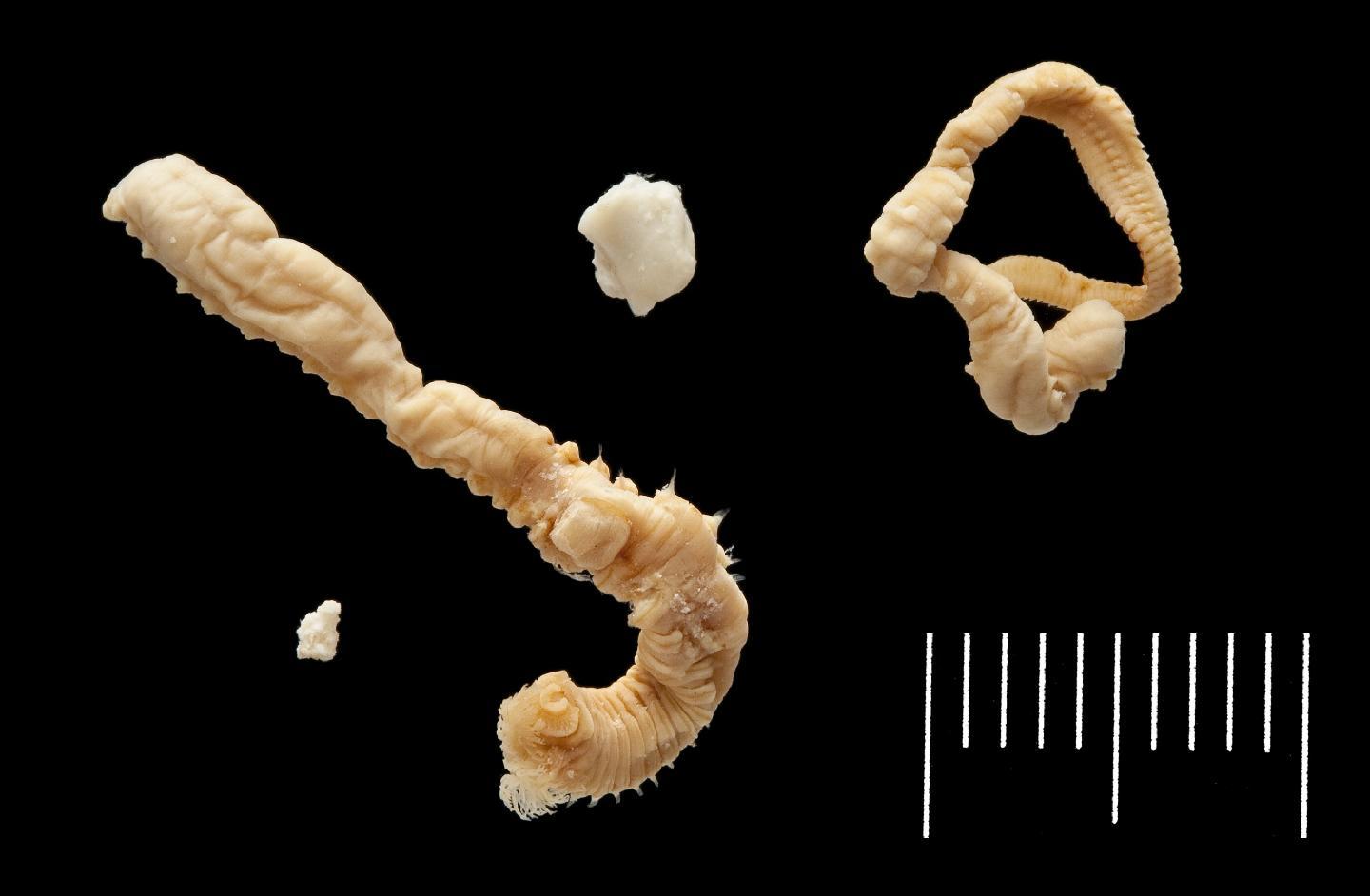
| About | | Search taxa | | Taxon tree | | Search literature | | Specimens | | Distribution | | Checklist | | Stats | | Log in |
Polychaeta taxon detailsLanicides lacuna Hutchings & Glasby, 1988
328628 (urn:lsid:marinespecies.org:taxname:328628)
accepted
Species
marine,
recent only
Hutchings, Patricia A.; Glasby, Christopher J. (1988). The Amphitritinae (Polychaeta: Terebellidae) from Australia. <em>Records of the Australian Museum.</em> 40(1): 1-60., available online at http://doi.org/10.3853/j.0067-1975.40.1988.150
page(s): 22, figs. 8a-d, 9a-c [details] Available for editors
Holotype AM W200609, geounit Queensland
Holotype AM W200609, geounit Queensland [details]
Etymology The specific name lacuna refers to the habitat in which this species lives, and is the latin word for a pool or pond.
Etymology The specific name lacuna refers to the habitat in which this species lives, and is the latin word for a pool or pond. [details]
Read, G.; Fauchald, K. (Ed.) (2024). World Polychaeta Database. Lanicides lacuna Hutchings & Glasby, 1988. Accessed at: https://marinespecies.org/polychaeta/aphia.php?p=taxdetails&id=328628 on 2024-07-03
Date action by
original description
Hutchings, Patricia A.; Glasby, Christopher J. (1988). The Amphitritinae (Polychaeta: Terebellidae) from Australia. <em>Records of the Australian Museum.</em> 40(1): 1-60., available online at http://doi.org/10.3853/j.0067-1975.40.1988.150
page(s): 22, figs. 8a-d, 9a-c [details] Available for editors  Present Present  Inaccurate Inaccurate  Introduced: alien Introduced: alien  Containing type locality Containing type locality
Holotype AM W200609, geounit Queensland [details]
Paratype AM USNM 99971, geounit Queensland [details]
Paratype AM W 200610, geounit Queensland [details]
Paratype AM W200611, geounit Queensland [details]
Paratype BMNH ZB. 1986:69, geounit Queensland [details]
From editor or global species database
Etymology The specific name lacuna refers to the habitat in which this species lives, and is the latin word for a pool or pond. [details]
|

